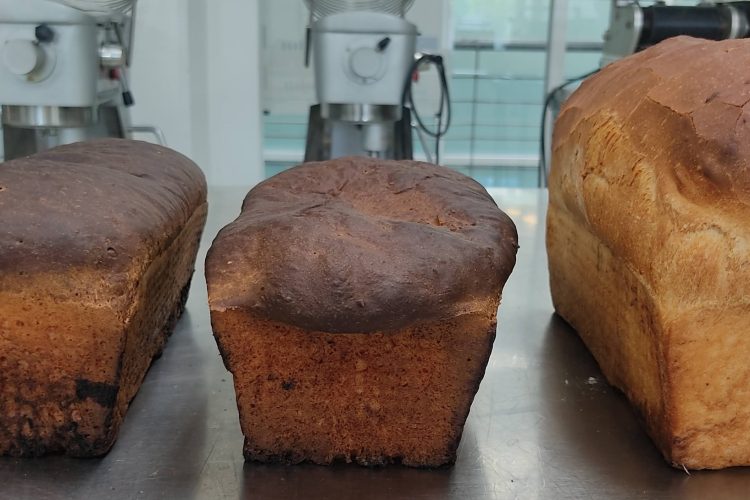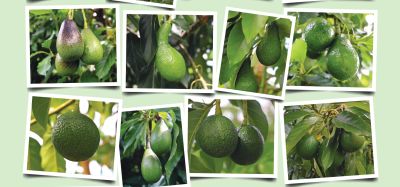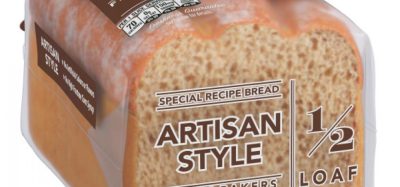Protein-rich grasshopper bread developed to combat future food insecurity
Posted: 27 June 2025 | Ben Cornwell | No comments yet
Mexican scientists develop sustainable insect-based bread to address global protein demand and combat food insecurity by improving nutritional intake without altering daily diets.


Credit: Tecnológico de Monterrey
As the global population surges toward 9.7 billion by 2050 and food demand rises by 60 percent, researchers in Mexico have unveiled a novel solution to tackle future food insecurity: sliced bread fortified with grasshopper flour.
Led by Dr Celeste Ibarra-Herrera at Tecnológico de Monterrey, the team is developing this insect-enriched product to offer a nutritious sustainable alternative to conventional bread without requiring dramatic changes to daily diets.
Dr Ibarra-Herrera said:
This innovation represents a concrete opportunity for people to improve their daily diet in a simple and accessible way. We are working so that with the consumption of this bread, people have a source of high-quality protein compared to traditional bread, in addition to significantly increasing the intake of iron, zinc, calcium, selenium and dietary fibre — critical nutrients whose deficiency continues to affect millions of people in Mexico and in the world.”
The bread is made using flour derived from Sphenarium purpurascens (milpa grasshopper) and Tenebrio molitor (mealworm), two edible insects already familiar in Mexican cuisine.
The bread’s key innovation lies in the flour’s fermentation process, currently under patent application, which uses an edible fungus to enhance texture, flavour and nutritional value. This method also improves the protein and fibre content, making the bread more digestible and appealing.
A familiar food, a new frontier
Though the idea of insect-based food may be unfamiliar and seem disgusting to some, entomophagy has deep cultural roots in Mexico. Several regions traditionally consume grasshoppers, maguey worms and escamoles, providing a ready-made foundation for expanding insect-based nutrition.
Dr Ibarra-Herrera explained:
The objective is clear: to creatively face the approaching protein deficit, offering sustainable foods that nourish better and are also pleasant for consumers. This bread represents a bold step towards transforming the perception of edible insects, integrating them into our diet in a familiar and appetising way.”
Environmental and nutritional edge
From a sustainability standpoint, insects offer significant advantages in fighting food insecurity. Producing 1 kilogram of beef requires around 8 kilograms of feed, while insects can achieve the same protein output with just 2 kilograms freeing up valuable resources like land and water.
FAO data indicates that insect farming can generate between 50 and 90 percent fewer greenhouse gas emissions, use up to 80 percent less water and require 90 percent less land per kilogram of protein compared to traditional livestock.
Nutritionally, grasshoppers are packed with complete protein, essential fatty acids, iron, zinc, selenium and fibre. They also contain bioactive compounds with antioxidant and anti-inflammatory properties. The fermentation process further boosts these benefits, improving flavour and protein content without compromising on texture or appearance.
Market potential and consumer acceptance
Researchers conducted sensory trials in Puebla, a region of Mexico known for its strong cultural tradition of grasshopper consumption, to assess acceptability. Results showed strong consumer approval, with participants preferring the grasshopper-based bread over other insect variants.
The research team aims to integrate this bread into everyday consumption without requiring significant changes in people’s eating habits, offering a way to enhance nutrient intake through a familiar and accessible product.
Initial commercial efforts will target health-conscious consumers and gourmet outlets. Broader rollout will follow further market testing. Given that Mexico is home to over 500 of the world’s 1,600 edible insect species, the country is well placed to lead the shift toward insect-based foods.
Call for regulatory reform
Dr Ibarra-Herrera also called for regulatory reform to support the wider adoption of insect-based products, which could play a key role in addressing food insecurity:
The integration of insect-based foods into our diet requires time and education, but through innovation, effective communication and the creation of sensorially attractive products, we are confident in achieving their normalisation, taking advantage of the nutritional and environmental benefits they offer.”
She further emphasised the importance of enabling policy to support entomophagy and promote a circular bioeconomy through the use of insects as sustainable food sources.
In a world demanding radical food innovation, this insect-fortified bread offers not just nourishment but a potential vision for the future of food.
Related topics
Alternative Proteins, Food Security, Health & Nutrition, Ingredients, Insect Protein, New product development (NPD), Proteins & alternative proteins, Research & development, Sustainability, World Food









